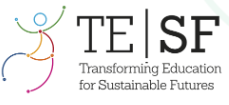
This new book published by Brill just came out and I am pleased to have been ablte contribute to its contents together with one of my colleagues from the University of Gothenburg, Anne Algers. Our chapter is part of a rich collection of chapters focusing on ways of opening education to allow for more dynamic forms of learning to emerge in a world that is trying to grapple with many of the existential and ecological crises that, both ironically and sadly, humanity itself has created. The chapter that Anne and I wrote (have look at the pre-print here: Sustainability_orientedOpenLearningAlgersWals2020) asks the question of “How can open education play a role in making academia more responsive and responsible in addressing ill-defined and ambiguous, but ever so urgent, sustainable development challenges?” In our chapter, a case study from the field of sustainable development of food systems provides a narrative that illustrates the possible impact of open education; and the value of a culture of openness to individuals, to a community, and to society.
First, we provide a contextual background on the implications of openness in higher education. Second, we introduce the subject of sustainable development (SD) of our global food systems; and third, we discuss the concept of education for sustainable development (ESD). Fourth, by means of thick description (Geertz, 1973), we report a case study on open education which we discuss in light of learning theory, critical pedagogy, and sustainable development.
In the end we argue for a radical interpretation of open education which we refer to as transformative sustainability-oriented open education, where ”open” refers to inviting and expressing critique and marginalized perspectives in controversial societal issues, while transformative refers to enabling learners to bring about change.
Suggested citation: Algers, A. & Wals, A. J. (2020). Transformative Sustainability-Oriented Open Education. In: Conrad, D. & Prinsloo, P. (Eds.). Open(ing) Education. (pp. 103-120). Leiden, The Netherlands: Brill | Sense. doi.org/10.1163/9789004422988_006
This work is licensed under the Creative Commons Attribution 4.0 International License.






